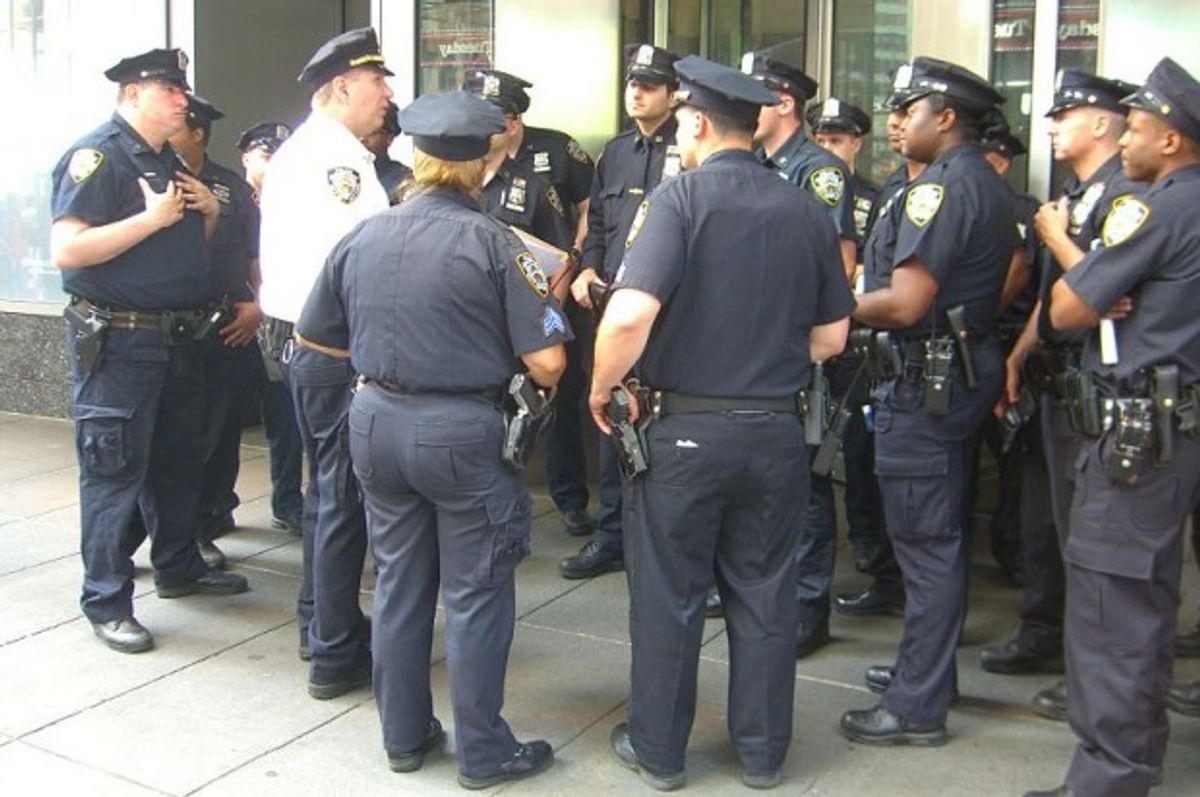WASHINGTON (AP) — The New York Police Department's focus on Muslims has renewed the political surveillance of the 1960s and '70s that was banned under a landmark legal ruling, according to a new court filing by civil rights lawyers. They are seeking an injunction against further surveillance of Muslims without evidence of crimes and a new court-appointed auditor to oversee police activities.
Describing continuing surveillance of Muslims as "widespread and intense," the civil rights lawyers complained that the NYPD has monitored public places where Muslims eat, shop and worship and has kept records and notes about police observations despite any evidence of unlawful or terror-related activities. The lawyers said the NYPD's actions violate rules, known as the Handschu guidelines, that a court had imposed as part of a 1985 landmark settlement with the NYPD to a lawsuit they filed.
"There is substantial persuasive evidence that the defendants are conducting investigations into organizations and individuals associated with the Muslim faith and the Muslim community in New York, and have been doing so for years, using intrusive methods, without a reasonable indication of unlawful activity, or a criminal predicate of any sort," the lawyers wrote in a motion to be filed Monday in the U.S. District Court for the Southern District of New York. They said the NYPD's actions were so "flagrant and persistent" that an auditor should be appointed.
A spokesman for the NYPD did not respond to a phone message and email request for comment from The Associated Press.
The NYPD and New York City Mayor Michael Bloomberg have said the department follows the Handschu guidelines and did not break any laws over the course of its surveillance of Muslim communities. NYPD Commissioner Raymond Kelly has said the department has plenty of oversight, including five district attorneys, a committee that investigates police corruption, the NYPD's own internal affairs office and the court-imposed Handschu guidelines.
The spying was the subject of a series of stories by the AP that revealed the NYPD intelligence division infiltrated dozens of mosques and Muslim student groups and investigated hundreds. The NYPD is the largest police department in the nation, and Bloomberg has held up its counterterrorism tactics as a model for the rest of the country. The new court motion by the civil rights lawyers refers repeatedly to the AP's reporting and includes some internal NYPD documents the AP had obtained and published.
The motion focuses on a particular section of the NYPD's intelligence division known initially as the Demographics Unit and later renamed the Zone Assessment Unit. This unit is at the heart of the NYPD's spying program, built with help from the CIA. It assembled databases on where Muslims lived, shopped, worked and prayed. Police infiltrated Muslim student groups, put informants in mosques, monitored sermons and catalogued every Muslim in New York who adopted new, Americanized surnames.
Supporters said the Demographics Unit was central to keeping the city safe, though a senior NYPD official testified last year that the unit never generated any leads or triggered a terrorism investigation.
The Handschu guidelines came out of landmark lawsuit the lawyers filed and a subsequent 1985 court settlement that set strict time limits for investigations, imposed rules on the kinds of records police could keep and created a three-person body to oversee such investigations.
The last time civil rights lawyers in the Handshu case filed a motion like this was in November 2005.



Shares